
Dja Faunal Reserve: A Wildlife Wonderland in Cameroon
Dja Faunal Reserve, a UNESCO World Heritage Site, is a pristine haven for nature enthusiasts, located in the heart of Cameroon. This vast expanse of tropical rainforest spans over 5,260 square kilometers and boasts one of the richest and most diverse ecosystems in Africa. The reserve is home to numerous endangered species, including lowland gorillas, chimpanzees, and forest elephants, making it a prime destination for wildlife lovers and conservationists alike. The reserve's dense and lush forests are interspersed with rivers, swamps, and savannas, creating a breathtaking landscape that offers a variety of habitats for its inhabitants. Visitors can explore the reserve through guided tours, which provide an immersive experience into this natural paradise. Birdwatchers will be thrilled by the presence of over 320 bird species, including the elusive grey parrot and the African crowned eagle. Apart from its incredible biodiversity, the Dja Faunal Reserve is also culturally significant. It is inhabited by the Baka pygmies, an indigenous community known for their deep knowledge of the forest and its resources. Interacting with the Baka people offers a unique opportunity to learn about their traditional lifestyles and survival skills. The reserve's commitment to conservation and sustainable tourism ensures that both its natural and cultural treasures are preserved for future generations.
Local tips in Dja Faunal Reserve
- Hire a local guide to navigate the dense forest and enhance your wildlife spotting experience.
- Visit during the dry season (December to February) for easier access and better wildlife viewing opportunities.
- Pack lightweight, long-sleeved clothing and insect repellent to protect against mosquitoes and other insects.
- Bring binoculars and a good camera for bird watching and capturing the stunning landscape.
- Respect the local Baka pygmies' customs and traditions when interacting with them.
Dja Faunal Reserve: A Wildlife Wonderland in Cameroon
Dja Faunal Reserve, a UNESCO World Heritage Site, is a pristine haven for nature enthusiasts, located in the heart of Cameroon. This vast expanse of tropical rainforest spans over 5,260 square kilometers and boasts one of the richest and most diverse ecosystems in Africa. The reserve is home to numerous endangered species, including lowland gorillas, chimpanzees, and forest elephants, making it a prime destination for wildlife lovers and conservationists alike. The reserve's dense and lush forests are interspersed with rivers, swamps, and savannas, creating a breathtaking landscape that offers a variety of habitats for its inhabitants. Visitors can explore the reserve through guided tours, which provide an immersive experience into this natural paradise. Birdwatchers will be thrilled by the presence of over 320 bird species, including the elusive grey parrot and the African crowned eagle. Apart from its incredible biodiversity, the Dja Faunal Reserve is also culturally significant. It is inhabited by the Baka pygmies, an indigenous community known for their deep knowledge of the forest and its resources. Interacting with the Baka people offers a unique opportunity to learn about their traditional lifestyles and survival skills. The reserve's commitment to conservation and sustainable tourism ensures that both its natural and cultural treasures are preserved for future generations.
When is the best time to go to Dja Faunal Reserve?
Iconic landmarks you can’t miss
Cameroon Reunification Monument
A landmark in Yaoundé symbolizing Cameroon's reunification and national unity, offering historical insights and cultural appreciation.
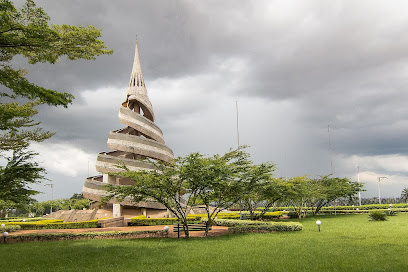
Bois Sainte Anastasie
A tranquil urban oasis in Yaoundé, Bois Sainte Anastasie offers a serene escape with lush gardens, art, and a relaxing atmosphere.
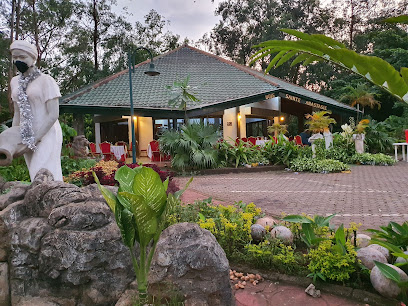
Ayos Centre
Discover the cultural heart of Foumban at Ayos Centre, an immersive experience into the art and traditions of the Bamoun Kingdom.
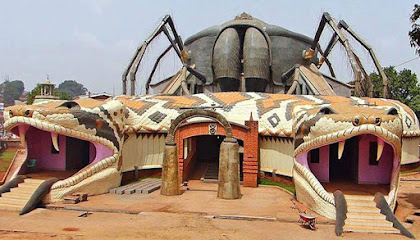
Waza National Park
Discover Cameroon's Waza National Park: a haven for lions, elephants, giraffes, and diverse birdlife in a stunning savanna landscape.
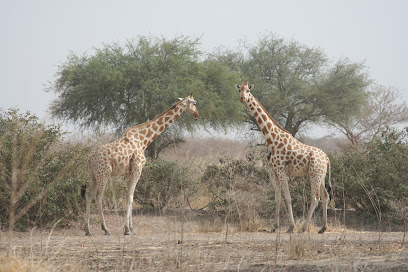
Limbe Wildlife Centre
Discover Cameroon's wildlife at the Limbe Wildlife Centre, a sanctuary dedicated to rescue, rehabilitation, and conservation education.
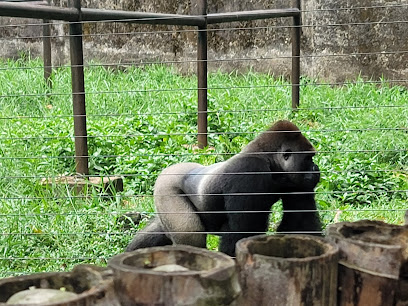
Limbe Botanic Garden
Discover Cameroon's botanical treasures at Limbe Botanic Garden, a historic haven of diverse flora and tranquil beauty by Mount Cameroon.
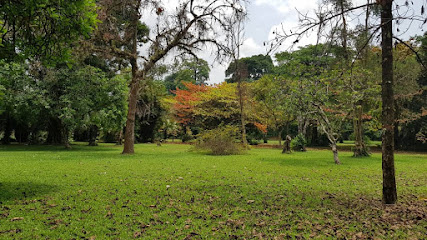
Ekom Nkam Waterfalls
Discover the breathtaking Ekom Nkam Waterfalls in Cameroon, a stunning natural wonder with cultural significance and cinematic history.
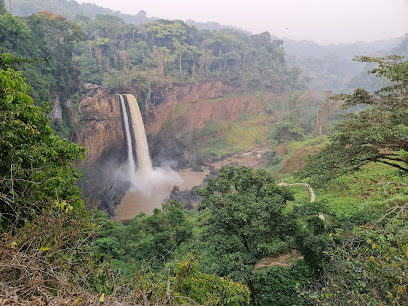
Parc de la Méfou (Ape Action Africa)
Observe rescued primates in a natural setting at this sanctuary near Yaoundé, supporting vital conservation efforts in Cameroon.
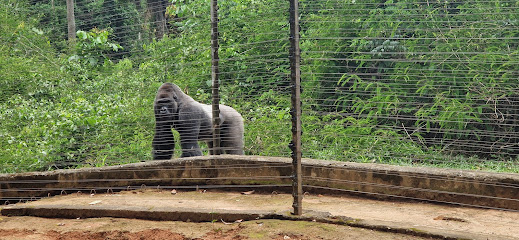
I love my country Cameroon round about
Experience Cameroonian pride at Yaoundé's 'I Love My Country' Round About, a vibrant landmark showcasing the nation's rich culture and artistic spirit.
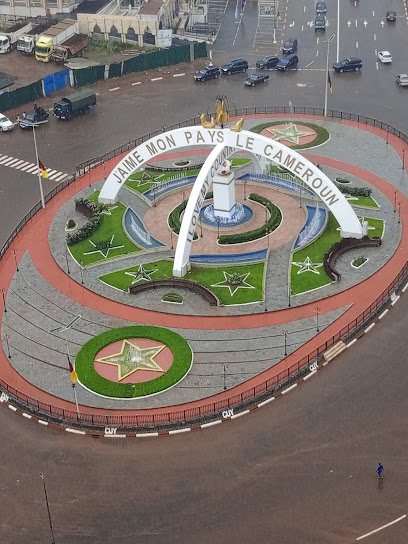
Campo Reserve
Discover Cameroon's Campo Reserve: A biodiversity sanctuary with lush forests, diverse wildlife, and tranquil nature trails.
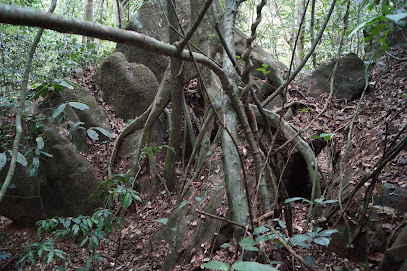
La Nouvelle Liberté
Discover La Nouvelle Liberté in Douala: a towering sculpture symbolizing freedom, recycling, and the vibrant cultural heart of Cameroon.
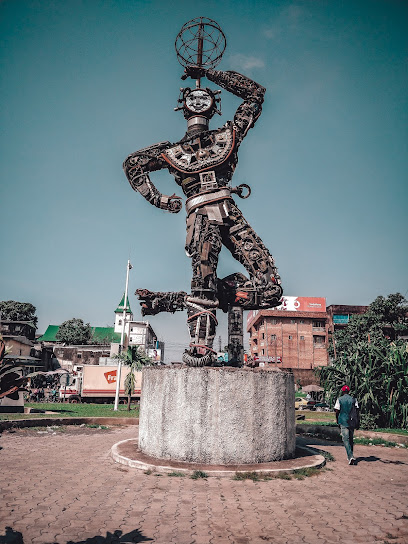
Ngoko River
Discover the serene beauty of Ngoko River, a pristine natural border offering lush landscapes, diverse wildlife, and tranquil experiences.
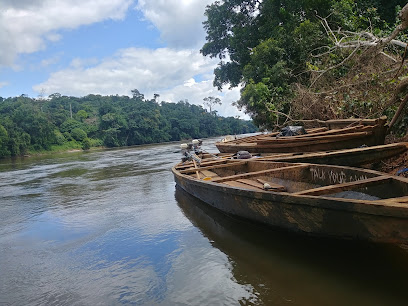
Station Coloniale Allemande
Explore Cameroon's colonial heritage at Station Coloniale Allemande in Yaoundé, a landmark of German influence and Cameroonian resilience.
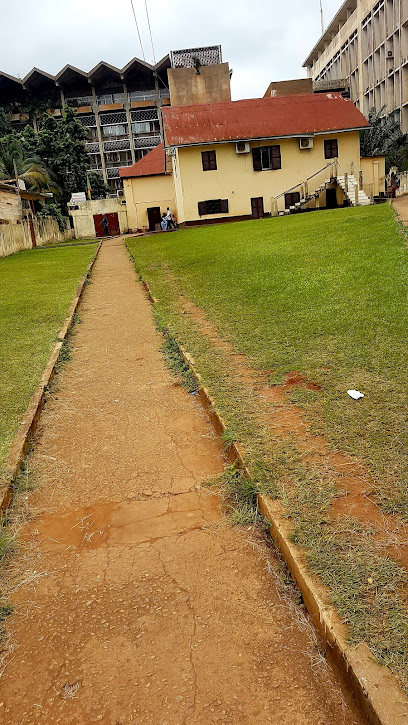
Monument Nachtigal
Explore Douala's colonial past at Monument Nachtigal, a tribute to German explorer Gustav Nachtigal in the heart of the vibrant Bonanjo district.
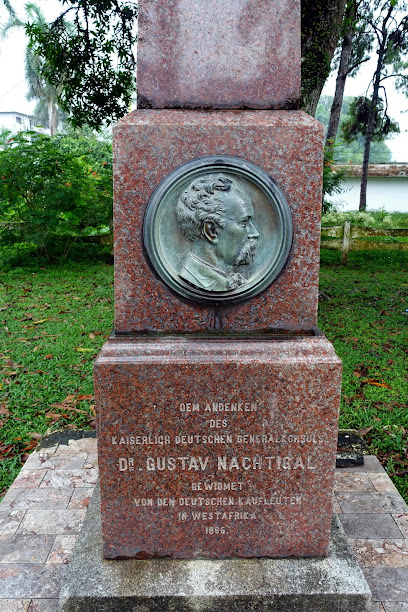
Unmissable attractions to see
Carrefour Manpang
Experience the vibrant culture and stunning landscapes at Carrefour Manpang, a must-visit tourist attraction in Abong Mbang, Cameroon.
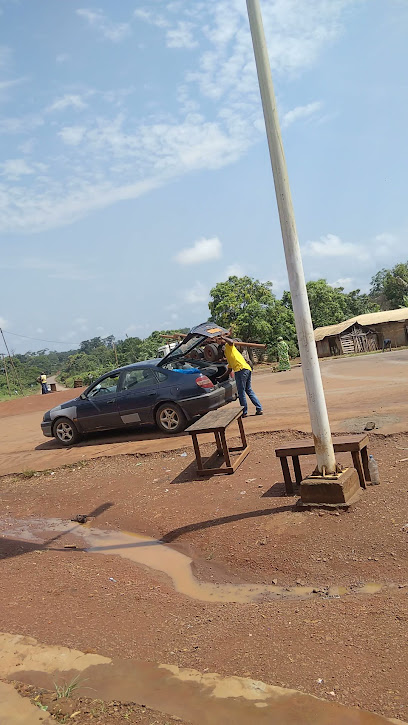
Rocher de Mezesse
Discover Rocher de Mezesse in Cameroon: Majestic rock formations, stunning views, and a unique natural experience in the heart of Africa.
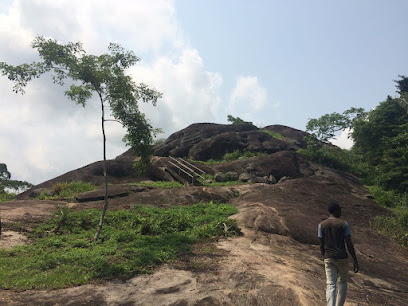
Essong Ndong Iva
Discover the breathtaking trails of Essong Ndong Iva, where nature meets adventure in a stunning hiking area in Esangmvout, Cameroon.
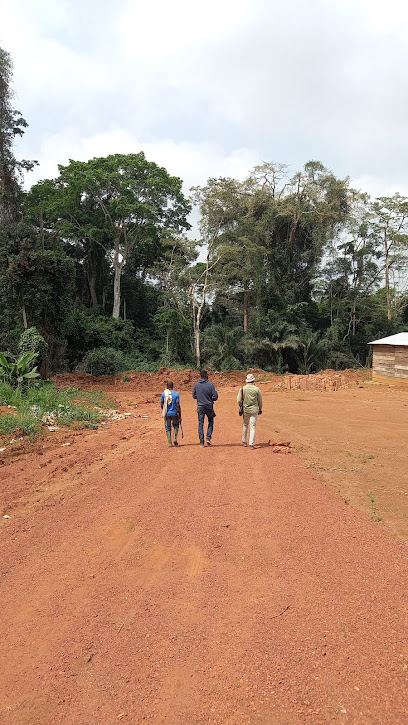
Maison Docteur Jamotde Ayos
Explore Maison Docteur Jamotde Ayos, a historical landmark in Cameroon, showcasing colonial architecture and medical history.
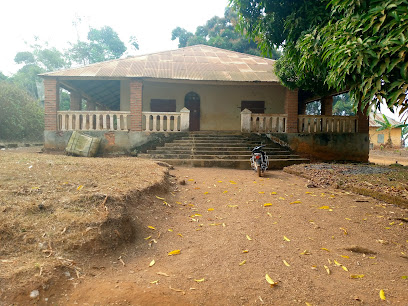
Pont Du Nyong (Ayos)
Discover the scenic beauty of Pont Du Nyong in Ayos, Cameroon, a perfect spot for nature enthusiasts and photographers alike.
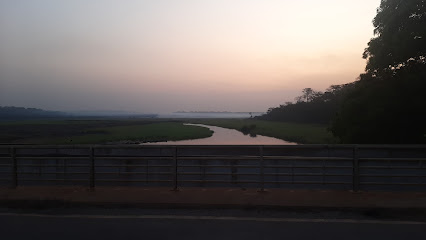
Bitsil
Experience the natural beauty and rich culture of Bitsil, a charming tourist attraction in Messamena, Cameroon, perfect for travelers seeking authentic local experiences.

Ngouandzang Ayos
Discover the serene beauty of Ngouandzang Ayos, a tranquil garden in Ayos, Cameroon, perfect for relaxation and nature exploration.
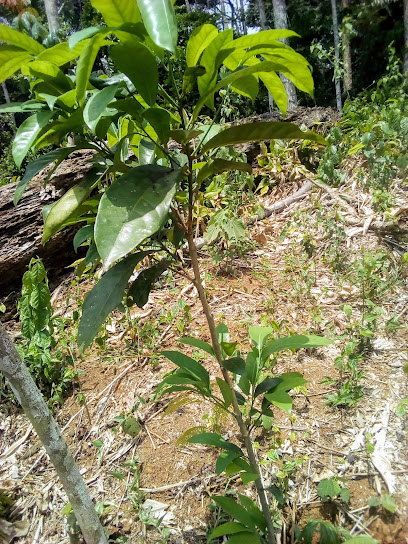
Ferme de meyomessi
Discover the serene beauty of Ferme de Meyomessi, a lush garden in Olounou perfect for relaxation and nature exploration.
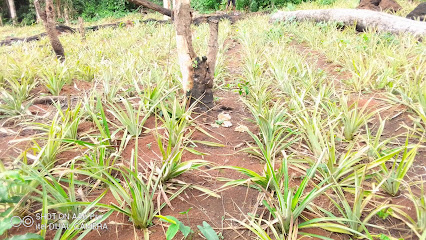
Village Blanc Ngoap
Experience the serene beauty and rich cultural heritage of Village Blanc Ngoap, an enchanting destination in the heart of Cameroon.

Djeunassoume
Discover the serene beauty of Djeunassoume, a tranquil garden in Abong Mbang, perfect for nature lovers and peaceful retreats.

Joycity Abong-mbang
Experience the vibrant culture, delicious cuisine, and warm hospitality at Joycity Abong-Mbang, a must-visit tourist attraction in Cameroon.
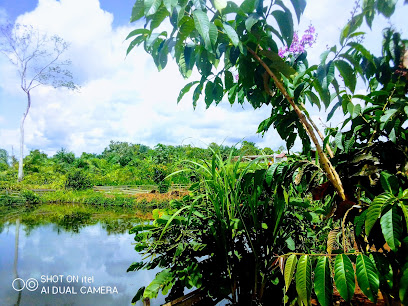
garden beauty eden
Discover Garden Beauty Eden in Ayos: A serene botanical garden with diverse flora, perfect for nature lovers and family outings in Cameroon.

Essential places to dine
Maison H
Discover authentic Cameroonian flavors at Maison H in Douala - where culinary tradition meets modern dining.
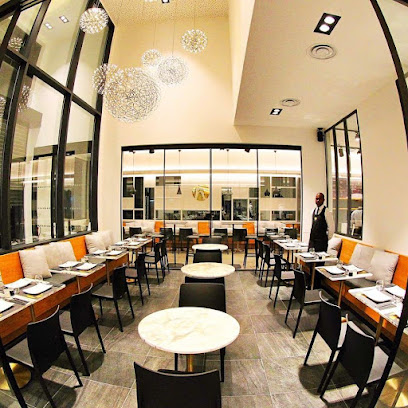
Saga Africa Restaurant - Akwa, Douala
Discover exquisite African and European flavors at Saga Africa Restaurant in Akwa, Douala - a delightful culinary experience awaits!
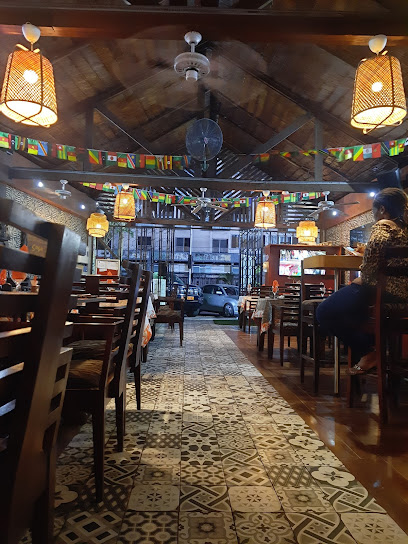
Bois Sainte Anastasie
Discover the perfect blend of delicious cuisine and serene nature at Bois Sainte Anastasie in Yaoundé – your ultimate culinary escape.
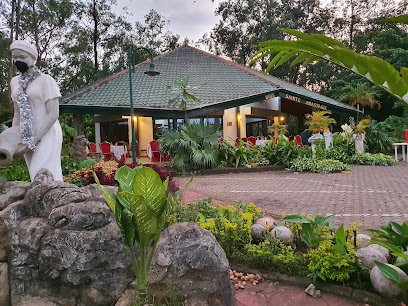
LA PIZZERIA
Experience authentic Italian cuisine at La Pizzeria in Douala - where every dish tells a story of tradition and flavor.
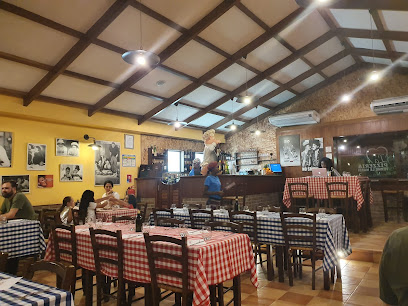
Le Safoutier Restaurant
Experience exquisite dining at Le Safoutier Restaurant in Hilton Yaoundé, where local flavors meet international cuisine amidst elegant surroundings.
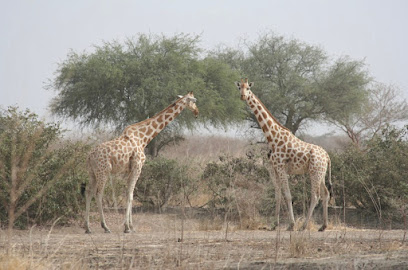
Restaurant 5 Fourchettes
Experience authentic Cameroonian cuisine blended with international flavors at Restaurant 5 Fourchettes in Douala.
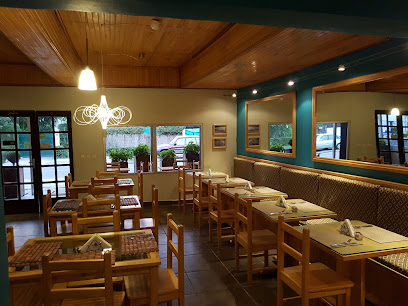
Restaurant Kajazoma
Discover authentic Cameroonian cuisine at Restaurant Kajazoma in Yaoundé - where tradition meets modern culinary artistry.
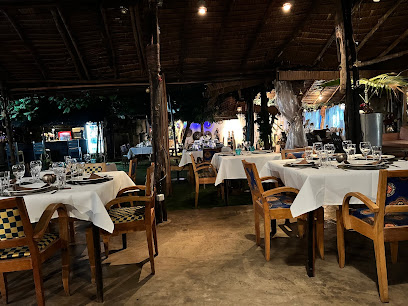
LA MARQUISE RESTAURANT
Experience authentic Cameroonian cuisine with a modern twist at La Marquise Restaurant in Douala – a culinary hotspot for every traveler.
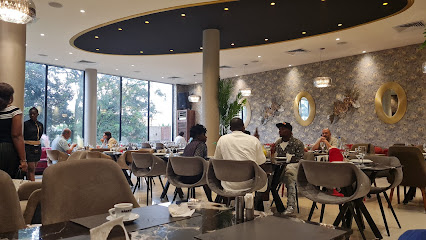
Bombay Masala
Savor the essence of India at Bombay Masala - Douala's finest destination for authentic Indian cuisine.
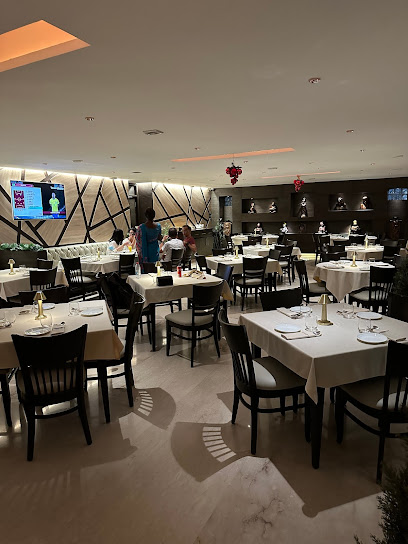
La Salsa Restaurant
Experience the vibrant flavors of Cameroon at La Salsa Restaurant, where culinary excellence meets warm hospitality in Yaoundé.
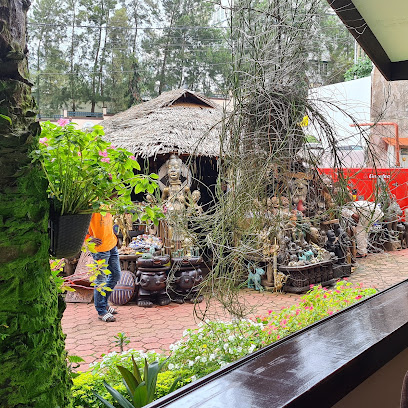
La Pizzeria, Yaoundé
Experience authentic Italian flavors at La Pizzeria in Yaoundé, where every slice tells a story of culinary passion and tradition.
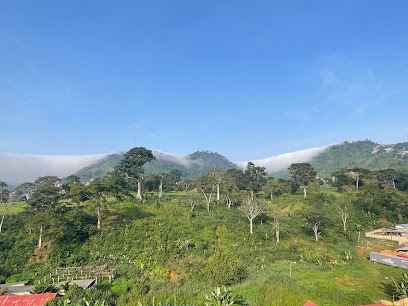
Le Plaisir du Gout
Experience authentic Cameroonian cuisine and delicious pizzas at Le Plaisir du Gout in Kribi – A true culinary gem by the coast.
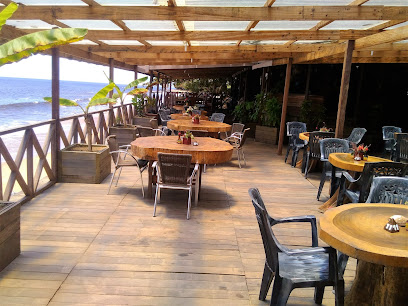
La Fourchette
Experience the best of Douala's culinary scene at La Fourchette, where local flavors meet international cuisine in an elegant setting.
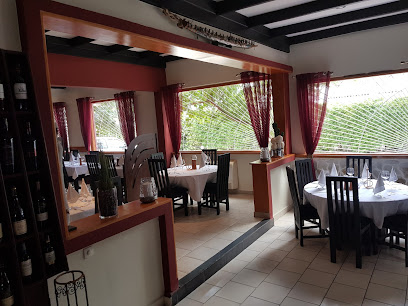
African food by Emy
Discover authentic African cuisine at African Food by Emy in Douala - where every dish tells a story.
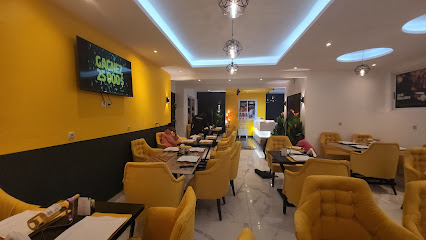
Platinium Cafe
Discover the vibrant flavors of Yaoundé at Platinium Cafe – where local cuisine meets international flair in an inviting setting.
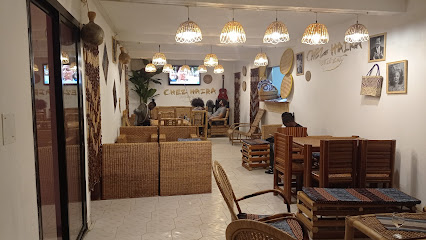
Markets, malls and hidden boutiques
Dja Faunal Reserve
Discover Cameroon’s Dja Faunal Reserve: A UNESCO World Heritage site filled with rich biodiversity, stunning landscapes, and thrilling wildlife encounters.
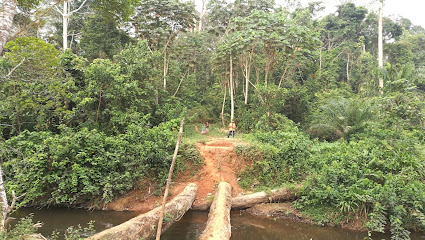
Club, SUDCAM
Experience the essence of Nlobésé at Club, SUDCAM, a vibrant coffee shop rich in local flavor and community spirit.
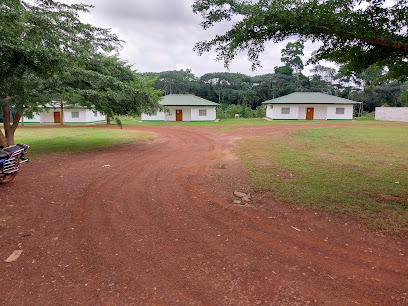
Angossas Centre
Explore Angossas Centre in Zendé: A vibrant shopping mall offering unique stores, delicious dining, and a taste of local culture.

Complexe Commercial Mvomeka
Explore Complexe Commercial Mvomeka, a bustling shopping mall in Mvomeka'a offering local culture, diverse shops, and delightful dining options.
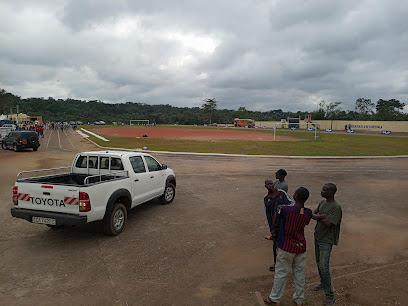
Marché central de Djoum
Explore the vibrant Marché Central de Djoum, a shopping haven bursting with local culture, crafts, and culinary delights in the heart of Cameroon.
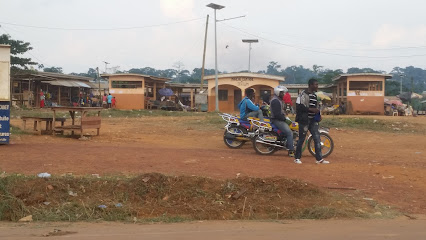
XI JIN PING INTERNATIONAL COMPLEXE AYOS
Explore the latest technology and gadgets at XI JIN PING INTERNATIONAL COMPLEXE AYOS, your premier electronics destination in Cameroon.
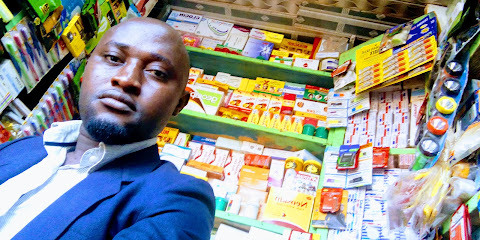
Ets CÉDRIC MULTI-SERVICE distributeur agréé CANAL+
Discover technology solutions and exceptional service at Ets CÉDRIC MULTI-SERVICE in Mvomeka'a, where your digital needs are met with expertise.
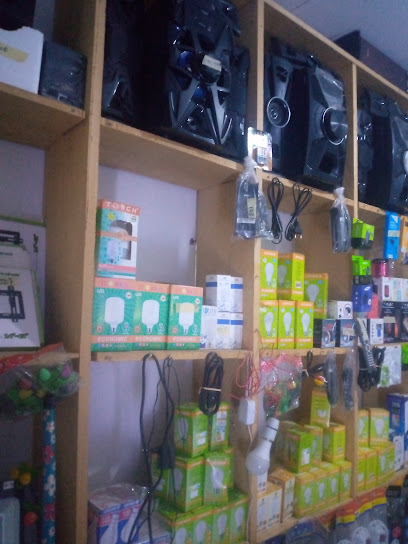
El.i.m.telecom
Discover the vibrant shopping experience at El.i.m.telecom, Abong Mbang's premier mall for local goods and cultural encounters.
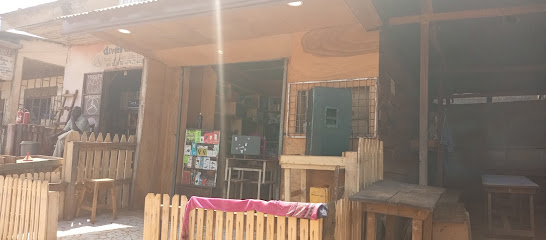
Quincaillerie du Dja & Lobo
Explore Mvomeka'a's Quincaillerie du Dja & Lobo for all your building material needs and discover local craftsmanship.
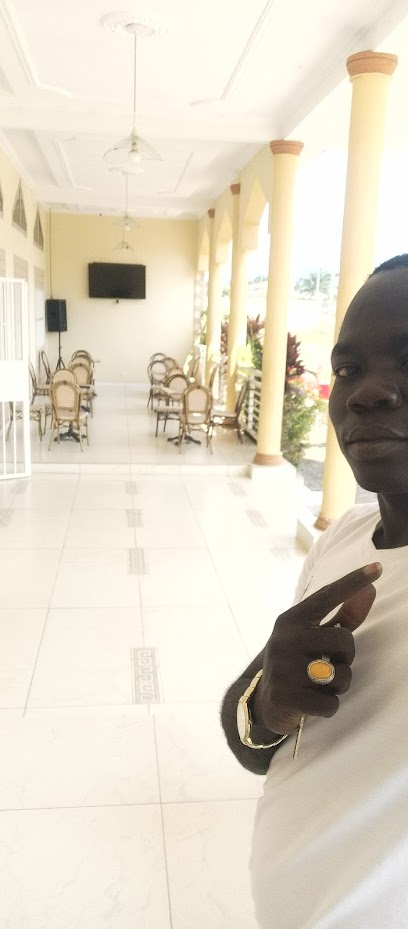
Le GOSHEN
Discover local flavors and essentials at Le GOSHEN, the premier supermarket in Abong Mbang, Cameroon.
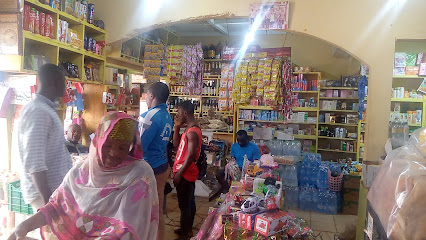
Cameron Project
Discover the artistry of Kongo at the Cameron Project, a unique needlework shop showcasing exquisite handmade textiles and local craftsmanship.
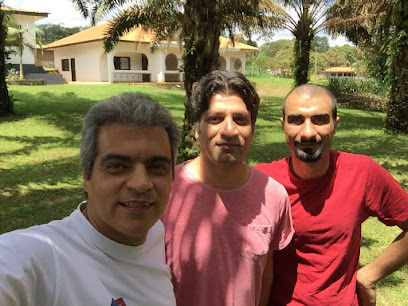
Abong-mbang shopping
Explore Abong-Mbang Shopping for a rich blend of culture, crafts, and culinary delights in the heart of Cameroon.
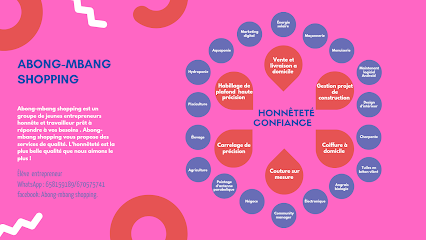
Café BABANA
Discover the charm of Café BABANA in Djoum, where local coffee blends meet a cozy ambiance for a perfect retreat.
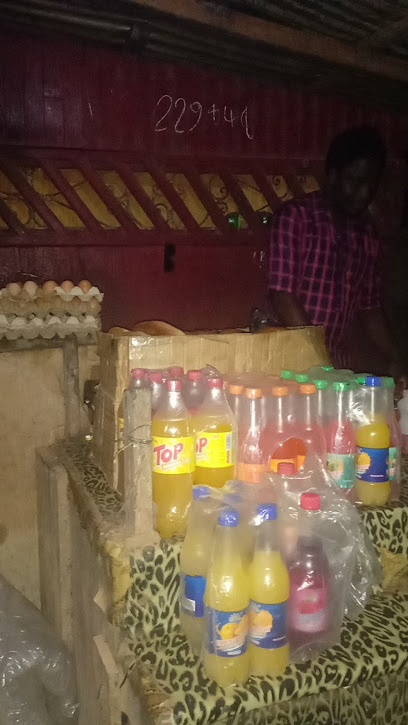
Buvette de Nkolbembe Zambe
Experience local life at Buvette de Nkolbembe Zambe, a charming convenience store in Mimbi offering essential goods and a taste of Cameroon.
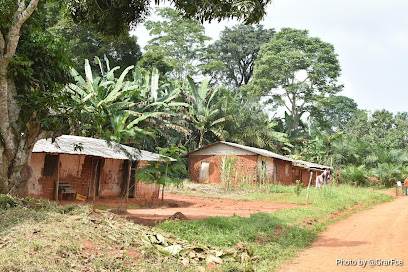
Nyangono du sud
Explore Nyangono du Sud in Djoum for a vibrant shopping experience that embodies the spirit and culture of Cameroon through local products and crafts.

Essential bars & hidden hideouts
Badjoue Bar
Discover the essence of Cameroonian dining at Badjoue Bar, where vibrant ambiance meets delicious grilled specialties.
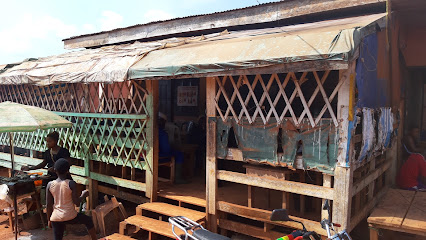
Pépinière
Explore the vibrant nightlife of Abong Mbang at Pépinière, the perfect bar to enjoy local drinks and lively entertainment.
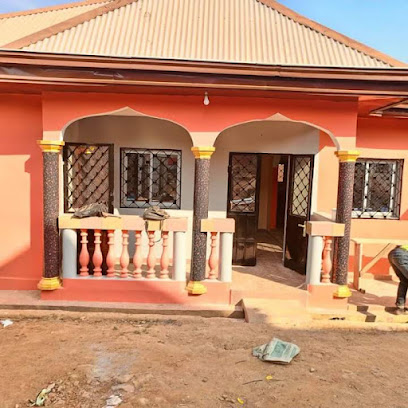
Le Lounge
Discover the serenity of Le Lounge in Doume, where relaxation meets local culture in a perfect blend of ambiance and flavor.
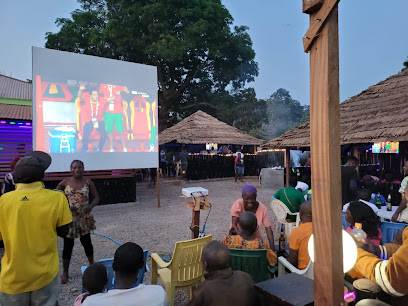
Afrik du Sud Motel
Experience the vibrant atmosphere of Afrik du Sud Motel in Ayos, a perfect blend of local charm and relaxation for every traveler.
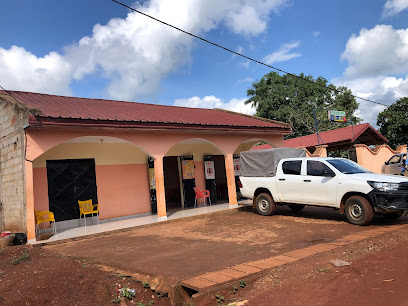
TERRASSE Abong Mbang
Experience the vibrant local culture at TERRASSE Abong Mbang, a lively bar in the heart of Abong Mbang offering delightful drinks and unforgettable moments.

peguy bar
Discover the energetic spirit of Abong Mbang at Peguy Bar, where locals and travelers unite for unforgettable nights filled with laughter and unique drinks.
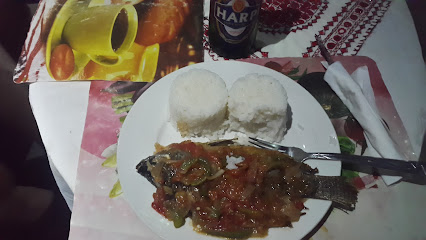
La PROVIDENCE
Discover the lively atmosphere of La PROVIDENCE, a vibrant bar in Messamena perfect for socializing and enjoying local drinks.
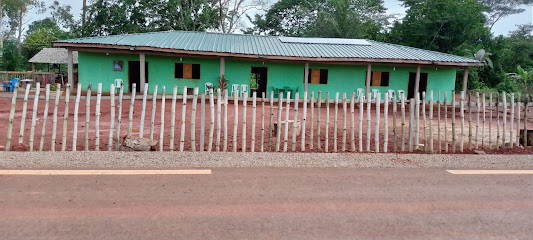
SNACK-BAR CHALLENGE
Experience the lively ambiance and local flavors at Snack-Bar Challenge in Abong Mbang, the perfect spot for relaxation and socializing.
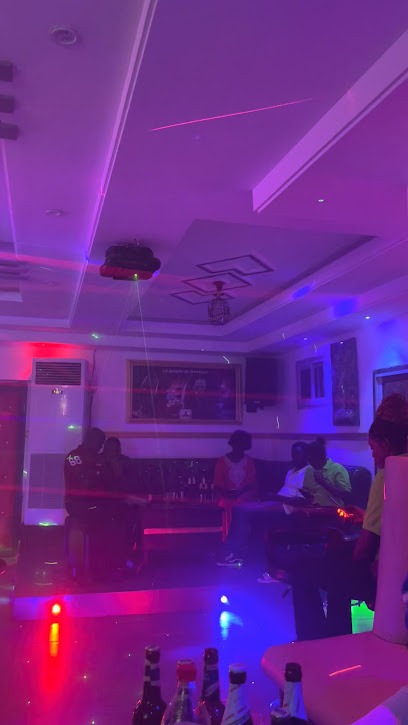
Challenge Bar
Immerse yourself in the local nightlife at Challenge Bar, a vibrant hub of culture and community in Abong Mbang.

Le Bristol
Discover the charm of Ayos at Le Bristol, a cozy bar offering a delightful selection of drinks in a warm and inviting atmosphere.

Le Byblos
Discover the vibrant nightlife at Le Byblos bar in Ayos - a perfect blend of great drinks and local culture for an unforgettable experience.

Bar Resto Le MANDAT
Discover the lively spirit of Djoum at Bar Resto Le MANDAT, where local flavors and a vibrant atmosphere await every visitor.

Renouveau Bar de Bigoens
Discover the lively nightlife at Renouveau Bar de Bigoens in Nyimbé, where drinks, music, and camaraderie create a vibrant experience for all.

Pharmacie de garde bar
Explore the exquisite selection of wines at Pharmacie de Garde Bar, a charming retreat in Ayos, Cameroon, perfect for wine lovers and casual visitors.

Local Phrases about Dja Faunal Reserve
-
- HelloMbote
[m-boh-teh] - GoodbyeKwaheri
[kwah-heh-ree] - YesEe
[eh] - NoTia
[tee-ah] - Please/You're welcomeMalamu
[mah-lah-moo] - Thank youAsante
[ah-san-teh] - Excuse me/SorrySamahani
[sah-mah-hah-nee] - How are you?Uko sawa?
[oo-koh sah-wah] - Fine. And you?Sawa. Na wewe?
[sah-wah. nah weh-weh] - Do you speak English?Unasema kiingereza?
[oo-nah-seh-mah keen-geh-reh-zah] - I don't understandSielewi
[see-leh-wee]
- HelloMbote
-
- I'd like to see the menu, pleaseNataka kuona menyu, tafadhali
[nah-tah-kah kwoh-nah meh-nyoo, tah-fah-dah-lee] - I don't eat meatSili nyama
[see-lee nya-mah] - Cheers!Mambo
[mahm-boh] - I would like to pay, pleaseNingependa kulipa, tafadhali
[neen-geh-pehn-dah koo-lee-pah, tah-fah-dah-lee]
- I'd like to see the menu, pleaseNataka kuona menyu, tafadhali
-
- Help!Usaidizi!
[oo-sah-ee-dee-zee] - Go away!Nenda zako!
[nen-dah zah-koh] - Call the Police!Piga polisi!
[pee-gah poh-lee-see] - Call a doctor!Piga daktari!
[pee-gah dahk-tah-ree] - I'm lostNimepotea
[nee-meh-poh-teh-ah] - I'm illNinaumwa
[nee-nah-oom-wah]
- Help!Usaidizi!
-
- I'd like to buy...Ningependa kununua...
[neen-geh-pehn-dah koo-noo-noo-ah] - I'm just lookingNatazama tu
[nah-tah-zah-mah too] - How much is it?Bei ni kiasi gani?
[beh-ee nee kya-see gah-nee] - That's too expensiveHii ni ghali sana
[hee nee gah-lee sah-nah] - Can you lower the price?Unaweza kupunguza bei?
[oo-nah-weh-zah koo-poon-goo-zah beh-ee]
- I'd like to buy...Ningependa kununua...
-
- What time is it?Saa ngapi?
[sah-ah ngah-pee] - It's one o'clockSaa moja
[sah-ah moh-jah] - Half past (10)Nusu kumi
[noo-soo koo-mee] - MorningAsubuhi
[ah-soo-boo-hee] - AfternoonMchana
[m-chah-nah] - EveningJioni
[joh-nee] - YesterdayJana
[jah-nah] - TodayLeo
[leh-oh] - TomorrowKesho
[keh-shoh] - 1Moja
[moh-jah] - 2Mbili
[m-bee-lee] - 3Tatu
[tah-too] - 4Nne
[n-neh] - 5Tano
[tah-noh] - 6Sita
[see-tah] - 7Saba
[sah-bah] - 8Nane
[nah-neh] - 9Tisa
[tee-sah] - 10Kumi
[koo-mee]
- What time is it?Saa ngapi?
-
- Where's a/the...?Iko wapi...?
[ee-koh wah-pee] - What's the address?Anwani ni ipi?
[ahn-wah-nee nee ee-pee] - Can you show me (on the map)?Unaweza kunionyesha (kwenye ramani)?
[oo-nah-weh-zah koo-nee-oh-nyeh-shah kweh-neh rah-mah-nee] - When's the next (bus)?Basi la pili ni saa ngapi?
[bah-see lah pee-lee nee sah-ah ngah-pee] - A ticket (to ....)Tiketi (kwenda ....)
[tee-keh-tee kwehn-dah]
- Where's a/the...?Iko wapi...?
History of Dja Faunal Reserve
-
Dja Faunal Reserve, situated in southeastern Cameroon, is one of Africa's largest and most well-preserved rainforests. Established as a reserve in 1950, it spans over 5,260 square kilometers. The area has a rich natural history, with its origins dating back millions of years, providing a habitat for a diverse range of flora and fauna.
-
In 1987, the Dja Faunal Reserve was designated a UNESCO World Heritage Site due to its exceptional biodiversity and relatively undisturbed ecosystem. This recognition helped bring international attention to the region, underscoring its importance as a conservation area and a natural heritage site of global significance.
-
The indigenous Baka people, also known as Pygmies, have lived in the Dja Faunal Reserve for centuries. Their deep knowledge of the forest and traditional way of life are integral to the cultural heritage of the area. The Baka's practices of sustainable living and their spiritual connection to the forest play a crucial role in the conservation efforts of the reserve.
-
During the colonial period, the region that includes the Dja Faunal Reserve was influenced by both German and French colonial powers. The establishment of the reserve in 1950 was partly driven by colonial conservation efforts to protect the biodiversity and resources from over-exploitation. This period marked the beginning of formal conservation initiatives in the area.
-
Over the years, Dja Faunal Reserve has become a significant site for biodiversity research and scientific studies. Numerous international and local researchers have conducted extensive studies on its unique ecosystems, contributing to our understanding of tropical rainforests and their inhabitants. These studies have been vital in shaping conservation strategies and policies.
Dja Faunal Reserve Essentials
-
Dja Faunal Reserve is located in southeastern Cameroon. The nearest major city and airport is Yaoundé, the capital of Cameroon, approximately 243 kilometers away. From Yaoundé, you can hire a private car or take a bus to Lomie, which is the nearest town to the reserve. The journey by road typically takes around 5 to 6 hours, depending on road conditions. It is advisable to arrange transportation in advance, as public transport options directly to the reserve are limited.
-
Within the Dja Faunal Reserve, transportation options are limited. The best way to explore the reserve is by hiring a local guide who can arrange 4x4 vehicles or boats, depending on the area you wish to visit. Walking and guided trekking are popular ways to experience the reserve's biodiversity. Be prepared for rough terrain and always follow the guidance of your local guide.
-
The official currency in Cameroon is the Central African CFA Franc (XAF). Credit cards are rarely accepted in rural areas, including near the Dja Faunal Reserve. It is advisable to carry sufficient cash for your needs. ATMs are available in larger towns like Yaoundé, but you should withdraw enough money before heading to the reserve. Ensure you have small denominations for easier transactions.
-
Dja Faunal Reserve is generally safe for tourists, but it is important to stay vigilant. Avoid traveling alone, especially at night, and always stay with your group or guide. Petty crime can occur, so keep your belongings secure and avoid displaying valuables. It is recommended to stay updated on local travel advisories and follow any safety guidelines provided by your guide.
-
In case of emergency, the local emergency number in Cameroon is 112. Medical facilities near the Dja Faunal Reserve are limited, so it is essential to have travel insurance that covers medical emergencies and evacuation. For minor health issues, carry a basic first aid kit and any necessary medications. Your guide will have knowledge of the closest medical facilities and can assist in emergencies.
-
Fashion: Do wear lightweight, breathable clothing suitable for the tropical climate. Long sleeves and pants are recommended to protect against insects. Avoid wearing flashy jewelry or expensive accessories. Religion: Do respect local customs and traditions. Be mindful of local religious practices and dress modestly. Public Transport: Public transport is limited near the reserve. Do be prepared for long journeys if using local buses. Greetings: Do greet locals with a friendly smile and handshake if appropriate. Learning a few phrases in French or local languages can be appreciated. Eating & Drinking: Do try local cuisine and accept food offerings graciously. Avoid drinking tap water; always use bottled or purified water.
-
To experience the Dja Faunal Reserve like a local, engage with the local Baka pygmy communities. They offer unique insights into traditional ways of life and their relationship with the forest. Participate in guided walks and learn about local flora and fauna from indigenous perspectives. Visit local markets in nearby towns to purchase handmade crafts and traditional goods. Always be respectful and open to learning about local cultures and practices.
Trending Landmarks in Dja Faunal Reserve
-
Cameroon Reunification Monument
-
Bois Sainte Anastasie
-
Ayos Centre
-
Waza National Park
-
Limbe Wildlife Centre
-
Limbe Botanic Garden
-
Ekom Nkam Waterfalls
-
Parc de la Méfou (Ape Action Africa)
-
I love my country Cameroon round about
-
Campo Reserve
-
La Nouvelle Liberté
-
Ngoko River
-
Station Coloniale Allemande
-
Monument Nachtigal
Nearby Cities to Dja Faunal Reserve
-
Things To Do in Yaoundé
-
Things To Do in Bitam
-
Things To Do in Ebolowa
-
Things To Do in Bafia
-
Things To Do in Edea
-
Things To Do in Kribi
-
Things To Do in Foumban
-
Things To Do in Douala
-
Things To Do in Carnot
-
Things To Do in Bafoussam
-
Things To Do in Nkongsamba
-
Things To Do in Mbouda
-
Things To Do in Mbini
-
Things To Do in Dschang
-
Things To Do in Tiko








